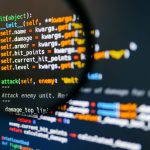In today’s digital age, community-centric approaches to learning are transforming traditional educational paradigms, offering enhanced collaboration, support, and diverse perspectives that are vital in our increasingly complex world.
Advantages Over Traditional Learning Methods
Traditional learning methods often emphasize a top-down approach, where information flows from the teacher to the student in a controlled, structured manner. This model frequently lacks the flexibility to address individual learning styles and fails to foster critical thinking skills necessary for today’s dynamic environments.
In contrast, community-based learning advocates for a collaborative approach where knowledge is built collectively and learners engage directly with one another, enhancing both the learning process and outcomes.1
The Inherent Values of Community
The core values of community in educational contexts include collaboration, support, and mutual growth. These values foster a rich learning environment where individuals are encouraged to share knowledge, challenge each other, and collectively advance. This framework not only supports learning but also prepares individuals for the collaborative nature of modern work environments.2
Community as the Bedrock of Social Interaction and Advancement
Community interactions are fundamental to human society and have long been a cornerstone of educational institutions. Today, as the world becomes more interconnected and industries evolve rapidly, the role of community in education has become even more critical. Learning within a community setting allows for the integration of diverse insights and fosters a collaborative spirit that is essential for innovation and problem-solving in contemporary settings.3
Spotlight on Success: Rebecca’s Journey
Take, for instance, the story of Rebecca, who embarked on her crypto journey through the Rowen Exchange, a community-based learning platform with a first-of-its-kind protocol dubbed “Crowd Learning”. Initially intimidated by the complexities of crypto, Rebecca found confidence and support within her crowd learning community, which was instrumental in her success. She reflects, “The collaborative environment was crucial. It allowed me to learn from the experiences of others and apply that knowledge practically.” Through community engagement, Rebecca not only learned about crypto, but purchased her first crypto currency and is a proud self-custody holder of a diverse crypto asset portfolio, a testament to the power of community-driven learning.4
The Rowen Exchange: A Pioneer in Community Learning
The Rowen Exchange exemplifies the benefits of community-centric learning. By emphasizing crowd-sourced knowledge and collaborative learning experiences, the platform not only democratizes education but also enhances the learning process, making it more relevant, engaging, and applicable to real-world scenarios. It provides a supportive network where individuals can learn, teach, and grow together, thereby advancing collective knowledge and fostering a sense of communal achievement.5
Rowen Exchange, underscore the shift towards more democratic, inclusive educational experiences. It facilitates access to a broader range of resources and perspectives and creates an environment where members can actively participate and take ownership of their learning journeys.
Conclusion
As we navigate the complexities of the modern world, the significance of community in education becomes increasingly apparent. Platforms like the Rowen Exchange are at the forefront of this educational revolution, embracing a future where learning is collaborative, decentralized, and driven by the collective wisdom of the community. Such approaches are not merely alternatives but are becoming essential strategies for personal and professional development in today’s interconnected world.











